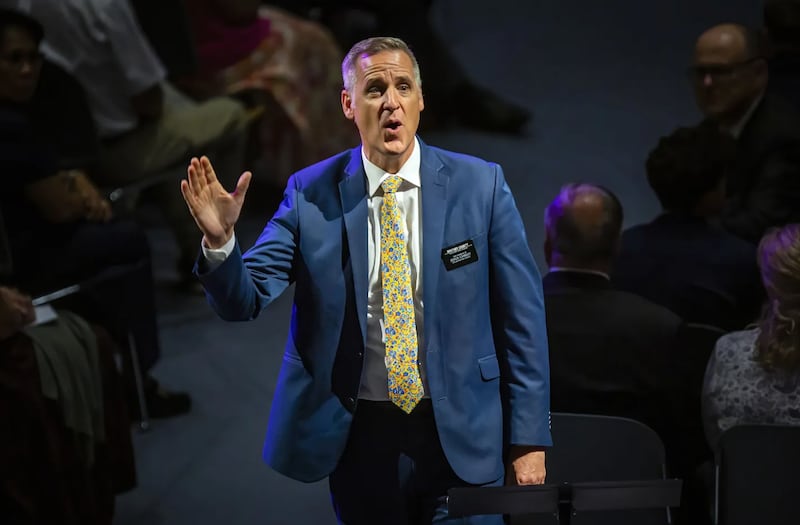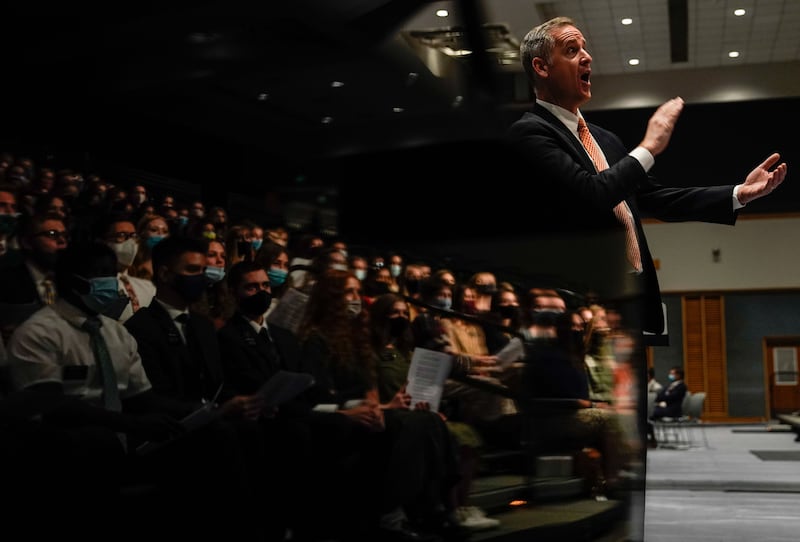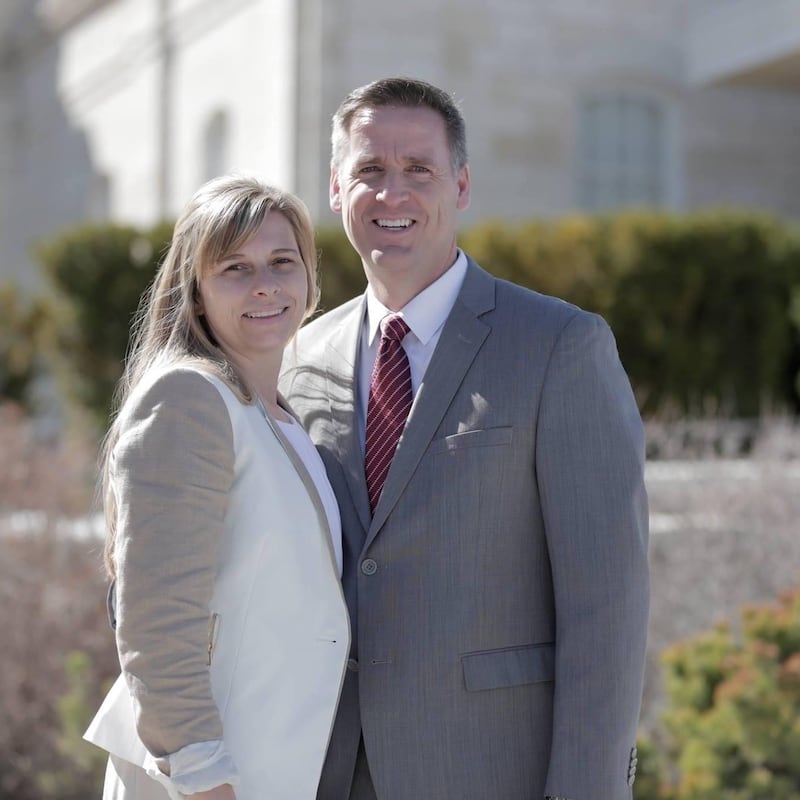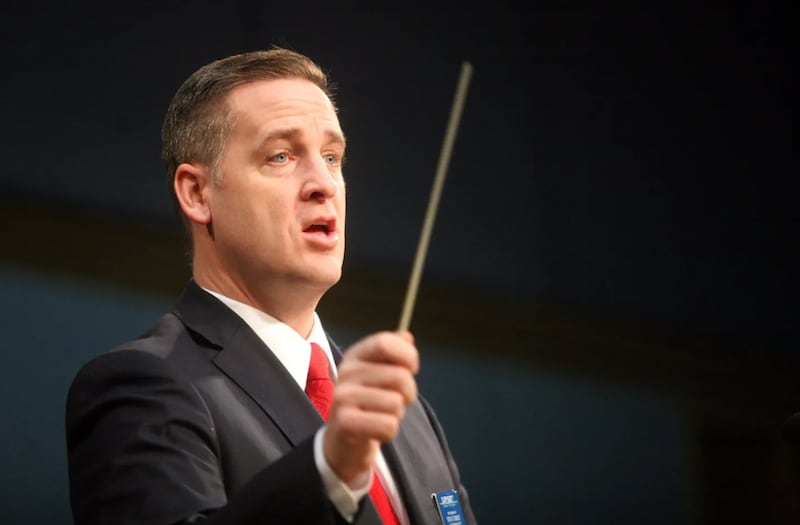Ryan Eggett is a music manager for the Church’s Priesthood and Family Department and was previously the director of the Provo Missionary Training Center choir and the choir at the Utah Valley Institute of Religion.
His time directing, though, has proven to be much more than simply teaching notes on a page. During his time at the Provo MTC, he led roughly 100,000 missionaries in his choir director calling for over 10 years, seeing miracles through music along the way.

“Music is one of those things that the Lord Himself has highlighted,” Eggett said in a recent Church News podcast. “And that is one of the things that draws me into music and wanting to use music as a way to help others come to the Savior.”
Eggett noted Doctrine and Covenants 25:11, where Emma Smith received revelation from the Lord to select sacred hymns, as they are pleasing unto Him. Eggett continued into verse 12, where the Lord says, “For my soul delighteth in the song of the heart.”
Whether an individual can sing well does not matter, Eggett said, because Heavenly Father rejoices in the heart’s song.
Eggett found this to be true while serving at the MTC. As missionaries remain in the MTC for two to nine weeks, this made for a quick turnover in the choir. Often 600 missionaries would sing, but he recalled one night when 1,800 of the 2,000 missionaries in the MTC sang in the MTC choir.
Upon asking how many missionaries had never sung in a choir before, most hands were raised. Despite just one or two rehearsals, for about an hour each, and despite how missionaries sounded during rehearsals, the devotionals were always amazing, Eggett said.
Often senior missionaries listening would say it sounded like angels were singing along too. “Participating musically is something that the Lord loves,” Eggett stated. “And the more that we do it, the more we receive some of these promised blessings from Him.”

Musical impact at the MTC took place on an individual level, as well. Following a devotional, he noticed an elder nearby, about 6 feet, 7 inches tall and 300-plus pounds, who had waited around for 15 minutes or so. Eggett finally approached him and asked if he could do something for the elder.
The elder began to cry and asked Eggett if he could hug him. After saying “yes” and being wrapped up in the elder’s embrace, Eggett said the elder told him he had not been able to gain a testimony of the Prophet Joseph Smith, despite praying a great deal.
The elder explained that upon singing “Joseph Smith’s First Prayer,” the Lord revealed to him it was true. Now, the elder felt, he could serve a mission and tell others of its truth.
Eggett said many similar stories have taken place and that just three weeks ago, a young man who had just moved into his ward explained he, too, had been struggling with his testimony and received revelation from the Lord as he sang.

Eggett referred to a quote from the late President Boyd K. Packer, President of the Quorum of the Twelve Apostles: “A testimony is to be found in the bearing of it.”
To which Eggett added, “You have to get on your feet and speak for the Lord to reveal to you, and singing is the bearing of a testimony.”
Eggett shared that within the Church there are five objectives of sacred music:
- Increase faith in and worship of Heavenly Father and Jesus Christ.
- Teach the core doctrine of the gospel with power and clarity.
- Invite joyful singing at home and at church.
- Comfort the weary and inspire members to endure in faith.
- Unify members throughout the Church.

“There’s a sense of being home in the Lord’s Church, because you’re going to find the same music, and especially with the new products, you’re going to find the same music in every congregation, in every language, in the same order in the new book,” Eggett said. “What a wonderful thing.”


